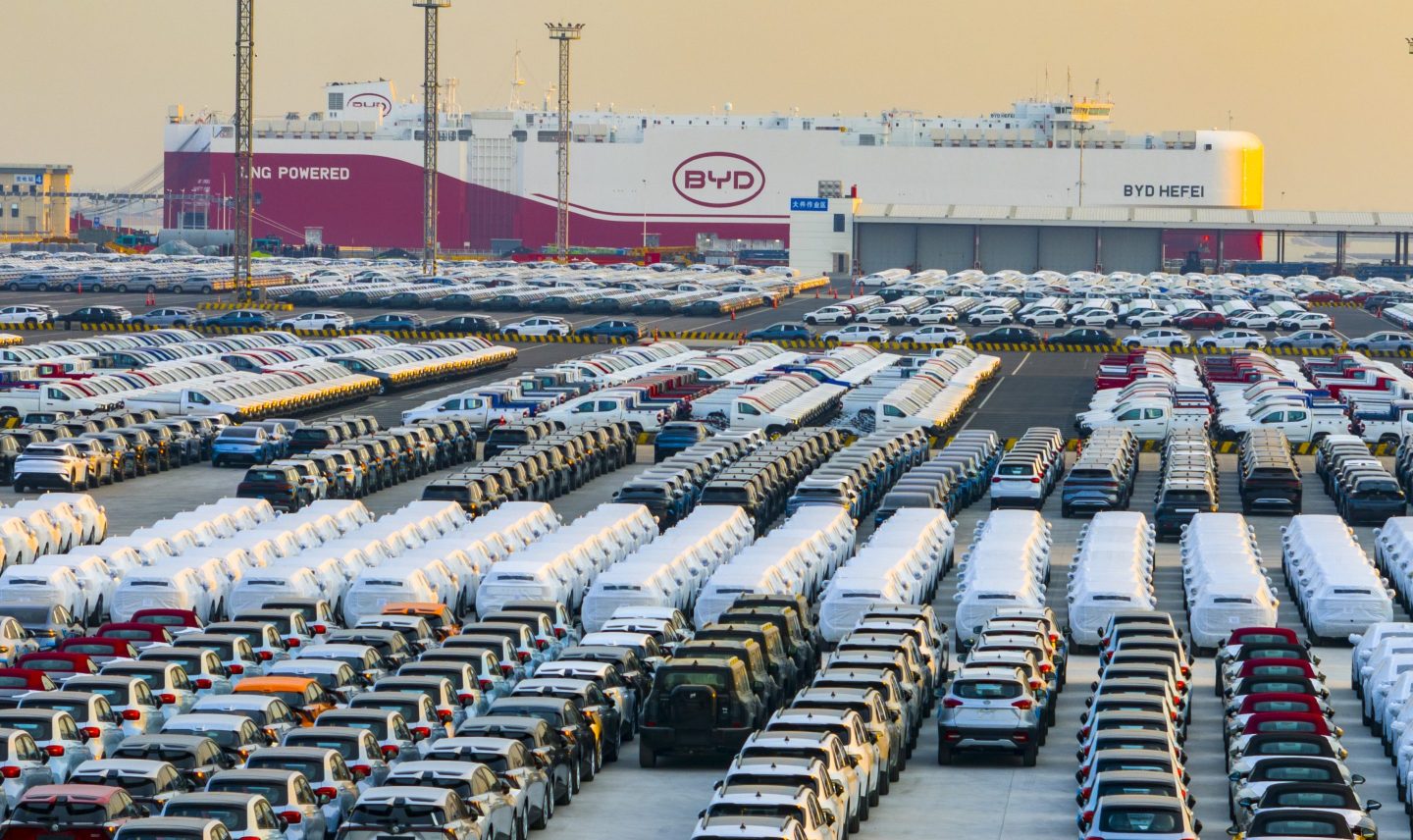President Donald Trump is taking a page directly from China’s own trade playbook.
The formula is simple and straightforward: “You want to access this big, beautiful market? You need to pay. So, you can either chew broken glass dealing with our tariffs or you can be smart and invest in manufacturing here inside our country.”
It is exactly this kind of direct ultimatum that has worked spectacularly well for China, now an automotive manufacturing colossus.
China: automotive powerhouse
China today builds more cars than any other country—three times more than America. China manufactures more electric vehicles and batteries than all other countries combined.
And this China juggernaut is no longer staying home. China shipped 6 million vehicles to more than 100 countries last year, blowing past perennial leaders Germany and Japan.
“We’ve never seen competition like this before,” Ford CEO Jim Farley recently told his leadership team at headquarters.
How did China's automotive industry go from an automotive pipsqueak to a powerhouse, feared by executives in Detroit, Stuttgart, and Tokyo? Tariffs, it turns out, played a huge role. Not the only role, but a big one.
When I first arrived in China in the 1986, China had neither the know-how nor the capital to build their own cars. The country had no option but to import mostly used cars from Japan, Germany, and the U.S.
Chinese leaders intensely disliked spending precious foreign exchange on imported cars, like used Nissan Cedrics and Toyota Crowns. But what choice did they have? In 1991, I met with the chairman of the Chinese Association of Automotive Manufacturers (CAAM) at a capacious government meeting hall in Beijing, overstuffed red cushions on giant chairs and all.
"How soon will China have a car to call its own?" I asked.
"About 10 years," he said with a shrug. China was that far behind.
Doing business in China
In the early 1990s, China made the dramatic decision to place 100% tariffs on all car imports and to ban used car imports. That shut the door on everything built overseas.
Prohibitive tariffs forced global automakers to manufacture cars inside China if they wanted to sell to Chinese buyers. That meant bringing capital and technology. And it meant training, ultimately, millions of Chinese managers and workers.
Chinese leaders also demanded that global automakers form joint ventures with Chinese partners. The Chinese side had to own no less than 50% of the venture, solidifying China's control over this ambitious industrial master plan
Of course, American, Japanese, and European automakers did not like the new rules. But they still wanted access to the China market. They began pumping tens of billions of dollars of investments into new plants and equipment. The Germans, French, and Americans were the first to arrive. At its peak, GM and its Chinese partners had built 27 full-scale manufacturing plants in China.
Eventually, every major automaker in the world invested in China to sell cars in China. That was the price of admission.
Why does Trump want tariffs?
The impact of tariffs and other protective measures has been nothing short of sensational. In every year from 2000 through 2024, imports have been limited to less than 6% of total vehicle sales in China.
In 2024, Chinese car imports declined for the third straight year to a piddling 3% of the total market.
How much money are we talking about? Chinese consumers spent an estimated $575 billion on new cars in 2024. Of that total, more than $550 billion worth was manufactured inside China.
Trump wants that for America.
Today, the U.S. Is home to the most open major car market in the world. Last year, imports accounted for almost 40% of new cars sold in America. They come in by the millions from Japan, South Korea, Europe. Mexico, and Canada, too. Chinese automakers would definitely be flooding the U.S. With cars if not for the 100% tariffs on car imports from China. (President Trump raised imports on Chinese cars to 25% in his first term. The Biden Administration lifted them to 100% in 2024.)
President Trump believes tariffs will lead to an industrial renaissance in America. China is proof of concept that tariffs can be effective. They can force companies to invest. They can add jobs—lots of them. And they can create valuable automotive and technology clusters.
Tariffs are no guarantee of success. But coupled with incentives to invest and compete inside America, they can be powerful.
China—home to the most highly protected major car market in the world—is now complaining about America becoming a little less wide open.
That's hypocritical. And President Trump knows it.
As Elon Musk, Trump's right-hand man, likes to say: "Fate loves irony."
The opinions expressed in Coins2Day.com commentary pieces are solely the views of their authors and do not necessarily reflect the opinions and beliefs of Coins2Day .
Read more:
- Tariffs won’t make America great again: Export-Import Bank's former chairman and president
- The best psych-out artists know how to mess with your mind, but Trump’s push for tariffs shows how this strategy can backfire
- Are Trump’s trade and tariffs tantrums repairing market failures or eroding global trust?
- Trump invites Chinese automakers to build cars in the U.S.—and says ones they build in Mexico will be hit with tariffs up to 200%











